#russian totalitarianism
Text

For over two decades, President Vladimir Putin has squeezed dissent in Russia. Critics, journalists, and defectors have faced dire consequences after opposing him. From poisonings to shootings, mysterious falls from windows, and even plane crashes, there is a long trail of silenced voices.
Alexei Navalny, whose death in prison is as yet unexplained, had previously fallen ill on a flight from Siberia to Moscow in 2020 after being poisoned with Novichok, a nerve agent. Alexander Litvinenko, a former Russian spy who defected and was a prominent Putin critic, was murdered with polonium-210 in London in 2016.
Other deaths of opposition figures under Putin's rule also appear to follow a pattern. Boris Nemtsov, shot dead near the Kremlin, and Stanislav Markelov, assassinated in Moscow alongside journalist Anastasia Baburova, are just two examples. Natalia Estemirova, abducted and found dead in Chechnya, and Anna Politkovskaya, an investigative journalist murdered in her Moscow apartment building, also paid the ultimate price following their dissent.
Here are 10 prominent Putin critics who have died in assassinations or mysterious circumstances.
Alexei Navalny
Date of death: February 16, 2024
Cause of Death: Alexei Navalny died in prison. The Russian prison service reported that he felt unwell after a walk and lost consciousness.
Biography: Alexei Navalny was a prominent critic of Vladimir Putin. He gained global attention in 2020 when he survived a poisoning with the nerve agent Novichok. Navalny willingly returned to Russia from Germany in 2021, where he had received treatment for the previous poisoning. Upon his return, he was promptly arrested. Navalny was known for exposing corruption, investigating Putin's inner circle, and leading anti-Kremlin opposition movements. His death is likely to be seen by fellow opposition members as a political assassination attributable to Putin, but is as yet unexplained.
Mikhail Lesin
Age: 57
Date of Death: November 5, 2015
Cause of Death: Mikhail Lesin was a former Russian press minister and media executive. He fell out of favor with Putin and faced scrutiny for his wealth. Lesin was found dead in a Washington, D.C. hotel room. The official cause of death was ruled as accidental blunt force injuries, but questions persist about the circumstances.
Boris Nemtsov
Age: 55
Date of Death: February 27, 2015
Cause of Death: Boris Nemtsov was shot dead on a bridge near the Kremlin. His murder remains unsolved, but many believe it was politically motivated. Nemtsov was a vocal critic of Putin's government, advocating for democracy, human rights, and transparency. He served as a deputy prime minister under President Boris Yeltsin and later became a prominent opposition figure.
Boris Berezovsky
Age: 67
Date of Death: March 23, 2013
Cause of Death: Boris Berezovsky was a wealthy businessman, oligarch, and former ally of Putin. However, he became a vocal critic and fled to the U.K. Berezovsky was found dead in his home in Berkshire, England. The official cause of death was ruled as suicide, but suspicions remain due to his high-profile opposition activities.
Sergei Magnitsky
Age: 37
Date of Death: November 16, 2009
Cause of Death: Sergei Magnitsky was a lawyer and auditor who exposed a massive tax fraud scheme involving Russian officials. He was arrested, imprisoned, and denied medical treatment. Magnitsky died in custody following severe beatings and medical neglect. His death led to the passing of the Magnitsky Act in the United States, which sanctions Russian officials involved in human rights abuses and corruption.
Stanislav Markelov
Age: 34
Date of Death: January 19, 2009
Cause of Death: Stanislav Markelov was a human rights lawyer and journalist. He was assassinated in Moscow by a gunman who also killed journalist Anastasia Baburova. Markelov had represented victims of human rights abuses and criticized the Russian government's actions in Chechnya. His death raised concerns about the safety of those opposing the regime.
Anastasia Baburova
Age: 25
Date of Death: January 19, 2009
Cause of Death: Anastasia Baburova, a journalist and activist, was shot dead alongside human rights lawyer Stanislav Markelov in Moscow. She had reported on neo-Nazi groups and political violence. Her murder remains unsolved, but it is believed to be connected to her activism.
Natalia Estemirova
Age: 50
Date of Death: July 15, 2009
Cause of Death: Natalia Estemirova, a human rights activist and journalist, was abducted in Grozny, Chechnya, and found dead later that day. She had documented human rights violations in Chechnya and criticized the government. Her murder remains unsolved, but it is widely believed to be connected to her activism and criticism of the Chechen authorities.
Anna Politkovskaya
Age: 48
Date of Death: October 7, 2006
Cause of Death: Anna Politkovskaya, an investigative journalist, was shot dead in her apartment building in Moscow. She had reported extensively on human rights abuses, corruption, and the war in Chechnya. Her work was critical of Putin's government, and her murder sparked international outrage. Despite investigations, the masterminds behind her killing have not been brought to justice.
Yuri Shchekochikhin
Age: 53
Date of Death: July 3, 2003
Cause of Death: Yuri Shchekochikhin was a journalist, writer, and member of the Russian State Duma. He investigated corruption, organized crime, and human rights abuses. Shchekochikhin suddenly fell ill and died from an unknown cause. Some suspect poisoning, but the circumstances remain unclear.
(continue reading)
List of journalists killed in Russia
The dangers to journalists in Russia have been known since the early 1990s but concern over the number of unsolved killings soared after Anna Politkovskaya's murder in Moscow on 7 October 2006. While international monitors mentioned a dozen deaths, some sources within Russia talked of over two hundred fatalities.
2009 reports on deaths of journalists in Russia: In June 2009, a wide-ranging investigation by the International Federation of Journalists into the deaths of journalists in Russia was published. At the same time, the IFJ launched an online database which documents over three hundred deaths and disappearances since 1993.
(continue reading)
#politics#russia#russian fascism ☭#authoritarianism#russian totalitarianism#russia is a terrorist state#vladimir putin is a war criminal#🇺🇦#authoritarian dictatorships
22 notes
·
View notes
Text
In the terrible winter of 1932–33, brigades of Communist Party activists went house to house in the Ukrainian countryside, looking for food. The brigades were from Moscow, Kyiv, and Kharkiv, as well as villages down the road. They dug up gardens, broke open walls, and used long rods to poke up chimneys, searching for hidden grain. They watched for smoke coming from chimneys, because that might mean a family had hidden flour and was baking bread. They led away farm animals and confiscated tomato seedlings. After they left, Ukrainian peasants, deprived of food, ate rats, frogs, and boiled grass. They gnawed on tree bark and leather. Many resorted to cannibalism to stay alive. Some 4 million died of starvation.
At the time, the activists felt no guilt. Soviet propaganda had repeatedly told them that supposedly wealthy peasants, whom they called kulaks, were saboteurs and enemies—rich, stubborn landowners who were preventing the Soviet proletariat from achieving the utopia that its leaders had promised. The kulaks should be swept away, crushed like parasites or flies. Their food should be given to the workers in the cities, who deserved it more than they did. Years later, the Ukrainian-born Soviet defector Viktor Kravchenko wrote about what it was like to be part of one of those brigades. “To spare yourself mental agony you veil unpleasant truths from view by half-closing your eyes—and your mind,” he explained. “You make panicky excuses and shrug off knowledge with words like exaggeration and hysteria.”
He also described how political jargon and euphemisms helped camouflage the reality of what they were doing. His team spoke of the “peasant front” and the “kulak menace,” “village socialism” and “class resistance,” to avoid giving humanity to the people whose food they were stealing. Lev Kopelev, another Soviet writer who as a young man had served in an activist brigade in the countryside (later he spent years in the Gulag), had very similar reflections. He too had found that clichés and ideological language helped him hide what he was doing, even from himself:
I persuaded myself, explained to myself. I mustn’t give in to debilitating pity. We were realizing historical necessity. We were performing our revolutionary duty. We were obtaining grain for the socialist fatherland. For the five-year plan.
There was no need to feel sympathy for the peasants. They did not deserve to exist. Their rural riches would soon be the property of all.
But the kulaks were not rich; they were starving. The countryside was not wealthy; it was a wasteland. This is how Kravchenko described it in his memoirs, written many years later:
Large quantities of implements and machinery, which had once been cared for like so many jewels by their private owners, now lay scattered under the open skies, dirty, rusting and out of repair. Emaciated cows and horses, crusted with manure, wandered through the yard. Chickens, geese and ducks were digging in flocks in the unthreshed grain.
That reality, a reality he had seen with his own eyes, was strong enough to remain in his memory. But at the time he experienced it, he was able to convince himself of the opposite. Vasily Grossman, another Soviet writer, gives these words to a character in his novel Everything Flows:
I’m no longer under a spell, I can see now that the kulaks were human beings. But why was my heart so frozen at the time? When such terrible things were being done, when such suffering was going on all around me? And the truth is that I truly didn’t think of them as human beings. “They’re not human beings, they’re kulak trash”—that’s what I heard again and again, that’s what everyone kept repeating.
— Ukraine and the Words That Lead to Mass Murder
#anne applebaum#ukraine and the words that lead to mass murder#current events#history#politics#russian politics#sociology#psychology#communism#warfare#totalitarianism#propaganda#holodomor#russo-ukrainian war#2022 russian invasion of ukraine#russia#ukraine#viktor kravchenko#lev kopelev#vasily grossman#kulaks
263 notes
·
View notes
Link
How Does The Democrat Party Compare To Nazi Germany
#totalitarianism#democrat party#joe biden#kamala harris#nancy pelosi#fascisim#censorship#russian propaganda#fani willis#letitia james#alvin bragg#arthur engoron#Nazis#Nazi Germany#election interference#Trump 2024
13 notes
·
View notes
Text
Favourite game: 017
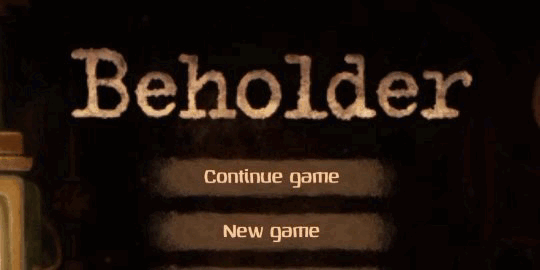
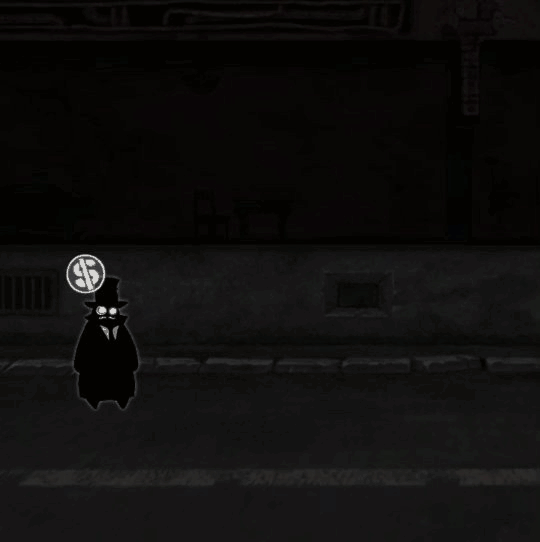
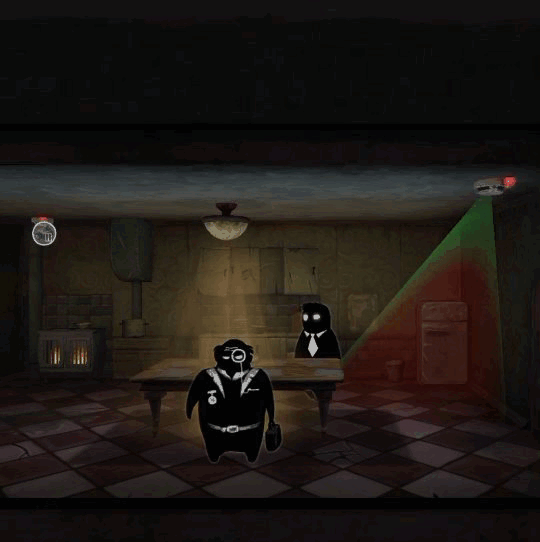
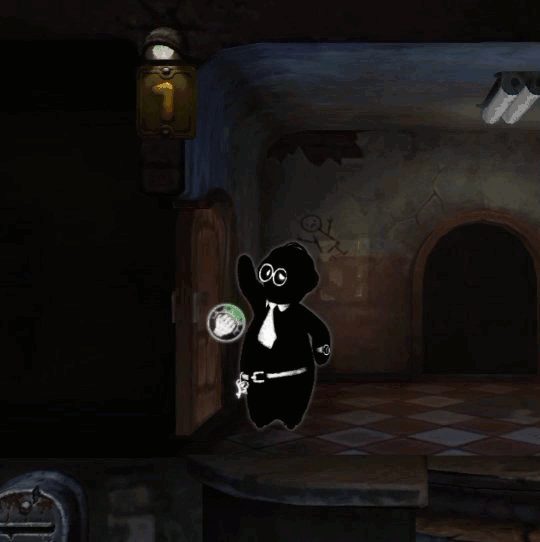
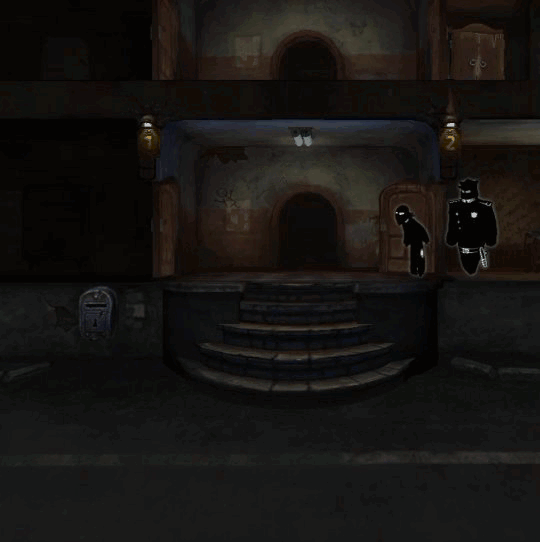
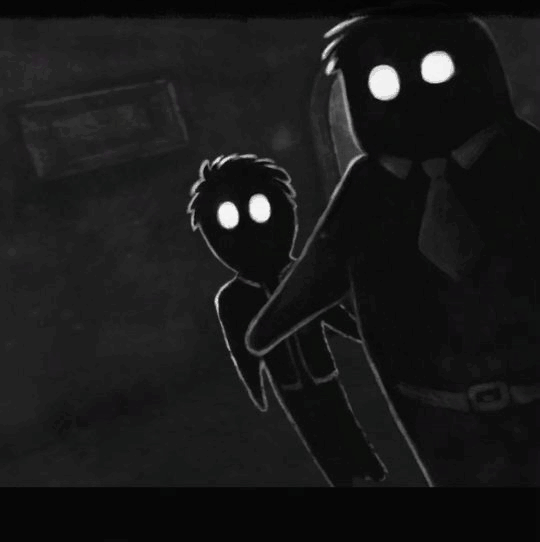
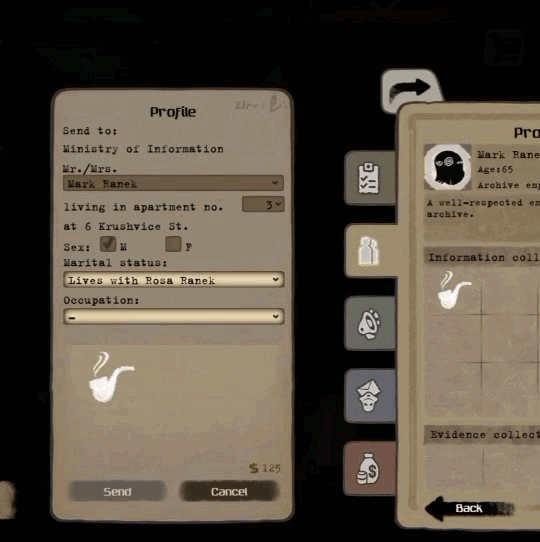
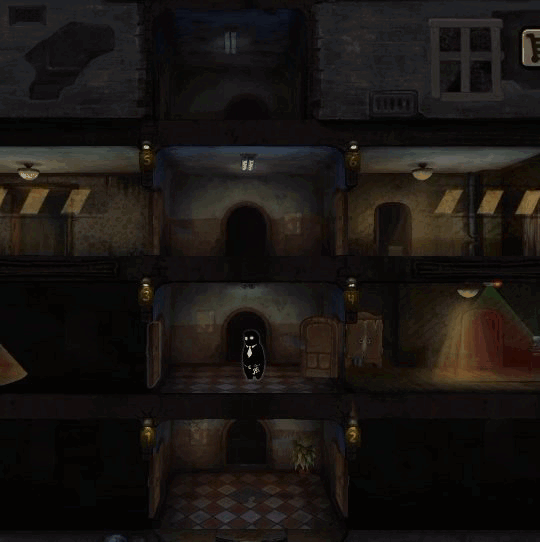
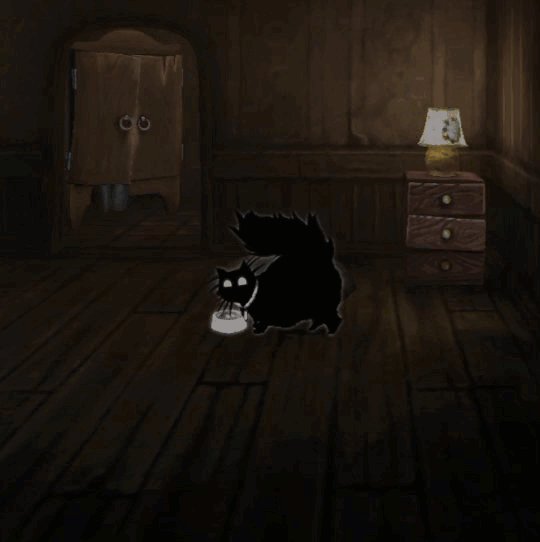
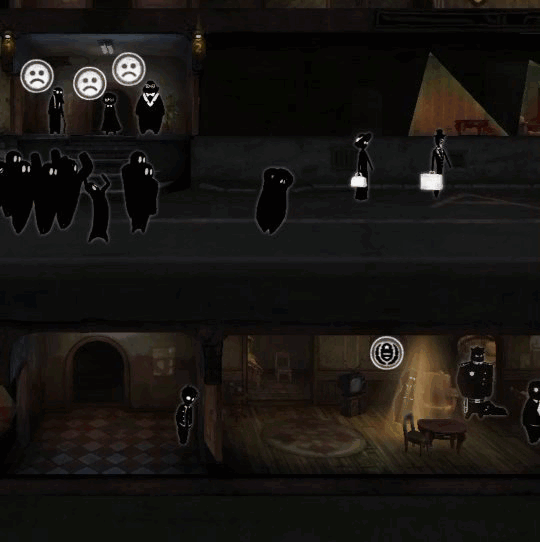
by Warm Lamp Games
Prev || Next
#beholder#carl stein#beholder game#warm lamp games#alawar#russian#totalitarianism#totalitarian state#my favourite#favourite game
13 notes
·
View notes
Text
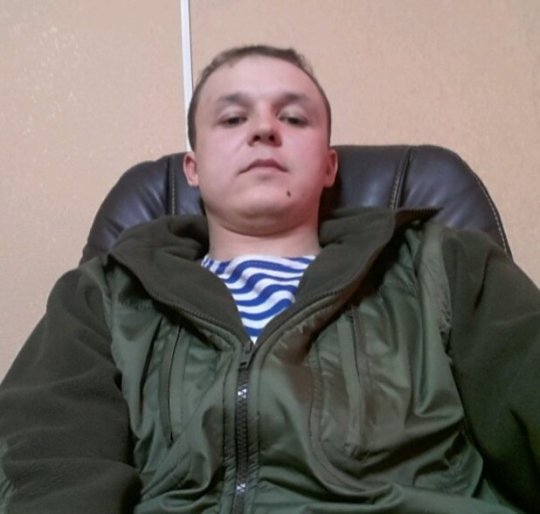
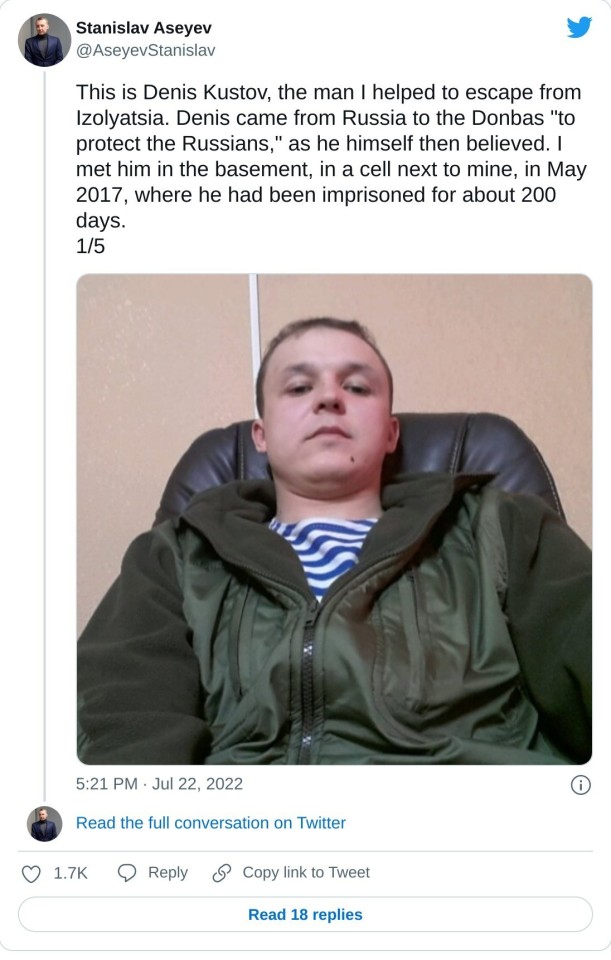
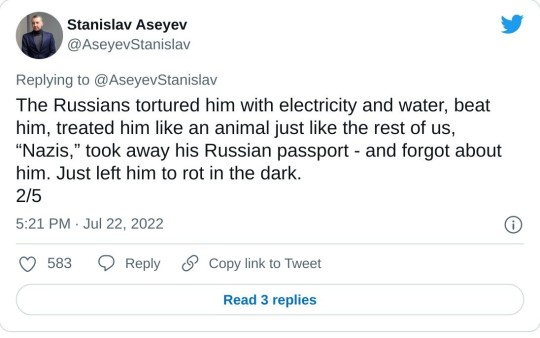
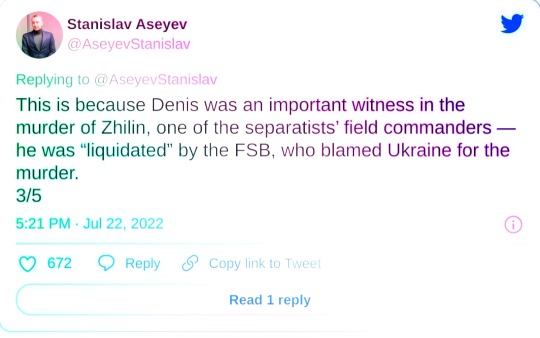
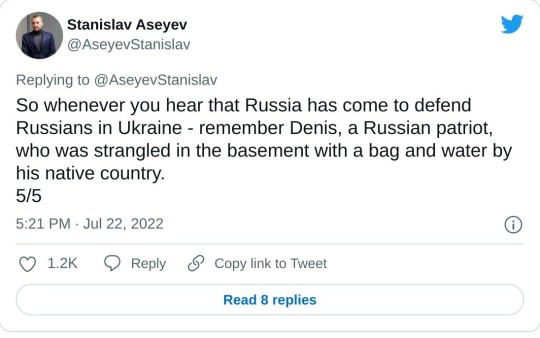
#life is cheap in russia#russia mafia totalitarian state#russia murderous state#russia blackest pit in hell#i stand with ukraine#slava ukraini#give weapons to ukraine#ukraine resistance#stop russian invasion#putin war criminal#stop putin#defend ukraine#putin war ukraine russia#ukraine war#help ukraine#stop putin's agents usa#stop putin allies
31 notes
·
View notes
Text

“Before slaughtering infected cattle, various preparatory measures have to be carried out: pits and trenches must be dug; the cattle must be transported to where they are to be slaughtered; instructions must be issued to qualified workers.
If the local population helps the authorities to convey the infected cattle to the slaughtering points and to catch beasts that have run away, they do this not out of hatred of cows and calves, but out of an instinct for self-preservation.
Similarly, when people are to be slaughtered en masse, the local population is not immediately gripped by a bloodthirsty hatred of the old men, women and children who are to be destroyed. It is necessary to prepare the population by means of a special campaign. And in this case it is not enough to rely merely on the instinct for self-preservation; it is necessary to stir up feelings of real hatred and revulsion.
It was in such an atmosphere that the Germans carried out the extermination of the Ukrainian and Byelorussian Jews. And at an earlier date, in the same regions, Stalin himself had mobilized the fury of the masses, whipping it up to the point of frenzy during the campaigns to liquidate the kulaks as a class and during the extermination of Trotskyist-Bukharinite degenerates and saboteurs.
Experience showed that such campaigns make the majority of the population obey every order of the authorities as though hypnotized. There is a particular minority which actively helps to create the atmosphere of these campaigns: ideological fanatics; people who take a bloodthirsty delight in the misfortunes of others; and people who want to settle personal scores, to steal a man's belongings or take over his flat or job. Most people, however, are horrified at mass murder, but they hide this not only from their families, but even from themselves. These are the people who filled the meeting-halls during the campaigns of destruction; however vast these halls or frequent these meetings, very few of them ever disturbed the quiet unanimity of the voting. Still fewer, of course, rather than turning away from the beseeching gaze of a dog suspected of rabies, dared to take the dog in and allow it to live in their houses. Nevertheless, this did happen.
The first half of the twentieth century may be seen as a time of great scientific discoveries, revolutions, immense social transformations and two World Wars. It will go down in history, however, as the time when - in accordance with philosophies of race and society - whole sections of the Jewish population were exterminated. Understandably, the present day remains discreetly silent about this.
One of the most astonishing human traits that came to light at this time was obedience. There were cases of huge queues being formed by people awaiting execution - and it was the victims themselves who regulated the movement of these queues. There were hot summer days when people had to wait from early morning until late at night; some mothers prudently provided themselves with bread and bottles of water for their children. Millions of innocent people, knowing that they would soon be arrested, said goodbye to their nearest and dearest in advance and prepared little bundles containing spare underwear and a towel. Millions of people lived in vast camps that had not only been built by prisoners but were even guarded by them.
And it wasn't merely tens of thousands, or hundreds of thousands, but hundreds of millions of people who were the obedient witnesses of this slaughter of the innocent. Nor were they merely obedient witnesses: when ordered to, they gave their support to this slaughter, voting in favour of it amid a hubbub of voices. There was something unexpected in the degree of their obedience.
There was, of course, resistance; there were acts of courage and determination on the part of those who had been condemned, there were uprisings; there were men who risked their own lives and the lives of their families in order to save the life of a stranger. But the obedience of the vast mass of people is undeniable.
What does this tell us? That a new trait has suddenly appeared in human nature? No, this obedience bears witness to a new force acting on human beings. The extreme violence of totalitarian social systems proved able to paralyse the human spirit throughout whole continents.
A man who has placed his soul in the service of Fascism declares an evil and dangerous slavery to be the only true good. Rather than overtly renouncing human feelings, he declares the crimes committed by Fascism to be the highest form of humanitarianism; he agrees to divide people up into the pure and worthy and the impure and unworthy.
The instinct for self-preservation is supported by the hypnotic power of world ideologies. These call people to carry out any sacrifice, to accept any means, in order to achieve the highest of ends: the future greatness of the motherland, world progress, the future happiness of mankind, of a nation, of a class.
One more force co-operated with the life-instinct and the power of great ideologies: terror at the limitless violence of a powerful State, terror at the way murder had become the basis of everyday life.
The violence of a totalitarian State is so great as to be no longer a means to an end; it becomes an object of mystical worship and adoration. How else can one explain the way certain intelligent, thinking Jews declared the slaughter of the Jews to be necessary for the happiness of mankind? That in view of this they were ready to take their own children to be executed - ready to carry out the sacrifice once demanded of Abraham? How else can one explain the case of a gifted, intelligent poet, himself a peasant by birth, who with sincere conviction wrote a long poem celebrating the terrible years of suffering undergone by the peasantry, years that had swallowed up his own father, an honest and simple-hearted labourer?
Another fact that allowed Fascism to gain power over men was their blindness. A man cannot believe that he is about to be destroyed. The optimism of people standing on the edge of the grave is astounding. The soil of hope - a hope that was senseless and sometimes dishonest and despicable - gave birth to a pathetic obedience that was often equally despicable.
The Warsaw Rising, the uprisings at Treblinka and Sobibor, the various mutinies of brenners, were all born of hopelessness. But then utter hopelessness engenders not only resistance and uprisings but also a yearning to be executed as quickly as possible.
People argued over their place in the queue beside the blood-filled ditch while a mad, almost exultant voice shouted out: 'Don't be afraid, Jews. It's nothing terrible. Five minutes and it will all be over.'
Everything gave rise to obedience - both hope and hopelessness.
It is important to consider what a man must have suffered and endured in order to feel glad at the thought of his impending execution. It is especially important to consider this if one is inclined to moralize, to reproach the victims for their lack of resistance in conditions of which one has little conception.
Having established man's readiness to obey when confronted with limitless violence, we must go on to draw one further conclusion that is of importance for an understanding of man and his future.
Does human nature undergo a true change in the cauldron of totalitarian violence? Does man lose his innate yearning for freedom? The fate of both man and the totalitarian State depends on the answer to this question. If human nature does change, then the eternal and world-wide triumph of the dictatorial State is assured; if his yearning for freedom remains constant, then the totalitarian State is doomed.
The great Rising in the Warsaw ghetto, the uprisings in Treblinka and Sobibor; the vast partisan movement that flared up in dozens of countries enslaved by Hitler; the uprisings in Berlin in 1953, in Hungary in 1956, and in the labour-camps of Siberia and the Far East after Stalin's death; the riots at this time in Poland, the number of factories that went on strike and the student protests that broke out in many cities against the suppression of freedom of thought; all these bear witness to the indestructibility of man's yearning for freedom. This yearning was suppressed but it continued to exist. Man's fate may make him a slave, but his nature remains unchanged.
Man's innate yearning for freedom can be suppressed but never destroyed. Totalitarianism cannot renounce violence. If it does, it perishes. Eternal, ceaseless violence, overt or covert, is the basis of totalitarianism. Man does not renounce freedom voluntarily. This conclusion holds out hope for our time, hope for the future.” (p. 213 - 216)

The Moloch of Totalitarianism in the Levashovo Wasteland, St. Petersburg, Russia
#grossman#vasily grossman#life and fate#totalitarianism#hitler#stalin#wwiii#world war 2#obediance#hoplessness#holocaust#holodomor#nazi#communism#fascism#russia#germany#russian lit#russian literature#soviet literature#books#bookshelf#library#book lover#moloch
8 notes
·
View notes
Text
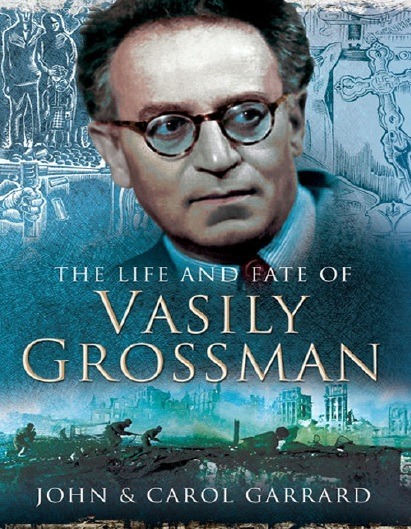
Every student of history should know Vasily Grossman.
Every Russian that countenances the myth of the so called "Patriotic War" should answer to what this man witnessed.
Every person concerned about authoritarianism and totalitarianism should shout this man's name.
3 notes
·
View notes
Link
Mouthpieces for the toralitarian Putin régime are placing all their hopes on a Trump return to power.
Appearing on Tuesday’s broadcast of The Evening With Vladimir Solovyov, Americanist Dmitry Drobnitsky noted: “Despite [Trump’s] looks and various criticisms of him, he is the most acceptable politician in today’s world—as well as a couple of Republicans.”
During Wednesday’s live broadcast The Evening With Vladimir Solovyov, host Vladimir Solovyov—who recently spent time in meetings with Russian President Vladimir Putin—detailed the only semi-plausible scenario of Moscow eventually escaping consequences for invading Ukraine. Solovyov said, “I liked it a lot when the White House said, “We have no opportunity to talk. Throw us a pass so that we’ll want to talk to you.” And we say, “We don’t want to. Maybe you want to talk, but we don’t. We don’t want to take any steps towards you. We’ll wait for Trump.”
Without a doubt, Putin’s paid trolls will be supporting the pro-treason and pro-insurrection Republican Party.
Despite the jovial banter, Russia’s attempts to interfere in the U.S. elections are well-documented. Whether or not they made a tangible difference in the most secure electoral system in the United States is debatable. However, the mere point of meddling and openly announcing their intentions are designed to ensure that the potential victory would be attributed to Russia’s interference, and the effort would be reciprocated.
“Just light a match and everything there will be ablaze,” Solovyov said in reference to America’s internal volatility and mounting political tensions.
Putin panicked after his stooge Trump had to leave the White House. He knew that the anti-NATO and anti-democracy Trump would turn a blind eye to his attempts to annex Ukraine. In 2021 after Trump’s departure, Russia undertook a massive military exercise in satellite state Belarus which turned out to be a rehearsal for the Ukraine invasion. And in mid 2021 Putin published a lengthy treatise claiming, with profound historical illiteracy, that there was no such thing as Ukraine.
When President Biden and NATO helped Ukraine prevent a Russian takeover, Russia grew even more nostalgic for their pawn Trump. They miss the old days when Putin could lead Trump around by his oversized necktie.

@JuliaDavisNews spends hours each day monitoring state-run Russian TV. One thing that’s clear is that the régime deeply misses Trump.
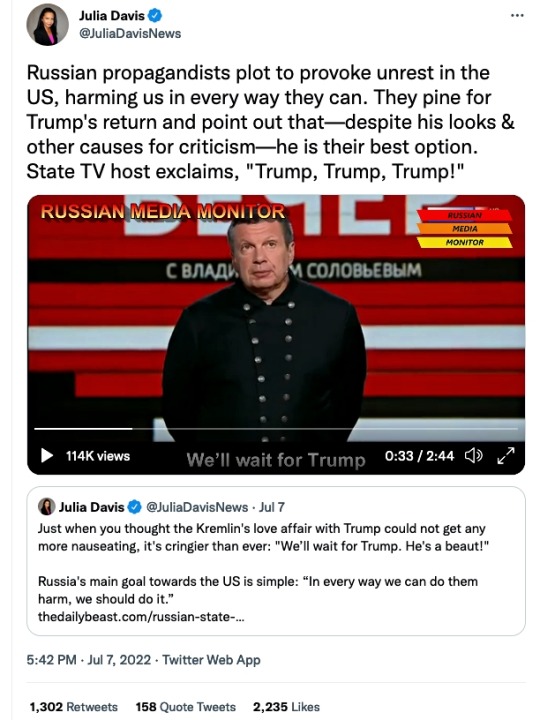
Being pro-Ukraine is being pro-democracy and pro-USA. Russia needs to start acting like a normal country. That won’t happen until Putin is soundly defeated or leaves the scene.
#russia#russian tv#donald trump#cringy pro-trump propaganda#vladimir solovyov#nostalgia for trump#julia davis#russian media monitor#invasion of ukraine#totalitarianism#vladimir putin#россия#владимир путин#владимир соловьёв#пропаганда#дональд трамп#путин хуйло#трамп хуйло#слава україні!
2 notes
·
View notes
Text
youtube
Nice coronation. I liked the falling snow.
#i like how even our weather is “totalitarian”#all grey no bright colors or sun#no surprise it's so easy to make Russia look evil#The Russian south is experiencing +30 and sunny weather at the same time
1 note
·
View note
Text
it is my theory that the closer to totalitarianism and the further from freedom a state gets, the more absurd it gets. It becomes distorted, removed from normal human activity, cartoonishly exaggerated to the extent it would be laughable if it weren't so dangerous. At times it is good to make fun of it, but of course that doesn't mean you shouldn't take it seriously.
#This also goes for individuals and groups#Like a certain politician....#Totalitarian#Democracy#Nazis#I am thinking about Wagner atm#And the absurdity of the russian regime#Their propaganda#ALSO distorts truth and facts#Reality distorting#Based on ideals that are not based in reality#Bases in ideas that are distorted- wrong- like racism
0 notes
Text
The thing is, I have nothing against socialism or communism as a political ideology; trust me, I'm as anti-capitalist as they come. The leftism is really not the problem here.
The problem is when in their leftism, people – Americans, really, and western Europeans – use the ussr as this sort of goal, this complete antithesis to the modern capitalist society, this almost-utopian place to live. They use hammer and sickle symbol, the ussr anthem; sometimes, as a joke, sometimes, not so much.
Not only that clearly shows that they know absolutely nothing about the ussr – it's also spreading russian propaganda, whether it's on purpose or not, which is especially insidious now, when russia is literally committing a genocide.
The ussr wasn't a socialist utopia where everyone is equal. It was a totalitarian dictatorship, responsible for colonisation and genocide of multiple people and cultures. Just like the russian Empire before it. Just like modern russia continues to do now.
For many Eastern European and Central Asian people, hammer and sickle is not just a symbol of a political ideology. It's the symbol, under which people were starved to death, imprisoned or executed for daring to write in their own language; in which cultures were erased, people – forcefully assimilated, stripped of their own national identity.
It's the propaganda of being "the same people, the same nation" that russians love to use; that westerners love to believe, for the sole reason of the oppressed daring to look similar to the oppressor; for the sole reason of Americans being unable to look past their own history and realize oppression comes in many shapes and forms.
By using the ussr symbols in your political movement, you're denying the atrocities commited under that symbol and spreading russian propaganda, whether it's on purpose or not.
It's not "progressive" to wave around a hate symbol.
Do your research.
11K notes
·
View notes
Text
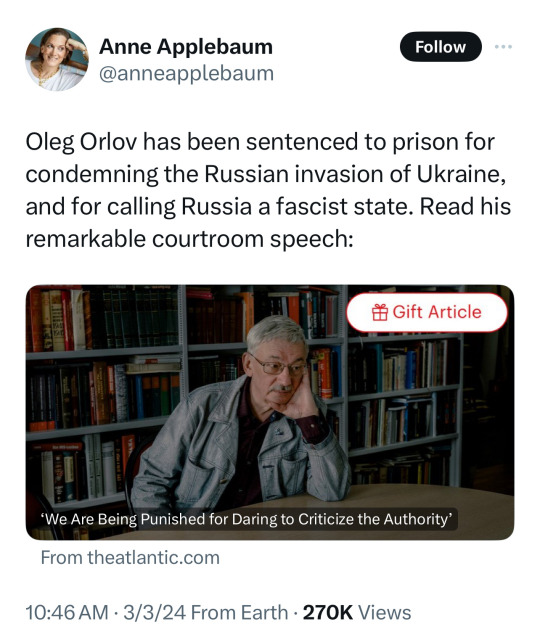
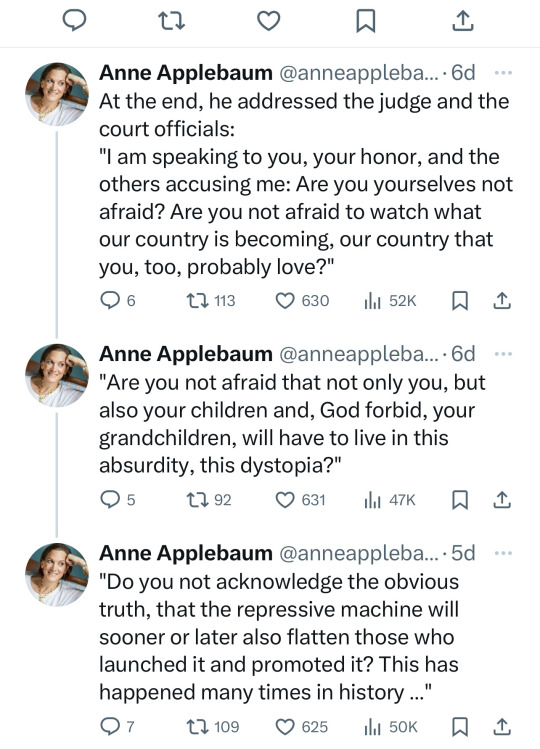
“This brutal war is not only mass murder of people and destruction of the infrastructure, economy, and cultural sites of Ukraine, but also a severe blow to the future of Russia, a country that is now pushed back into totalitarianism, but this time into a fascist totalitarianism.
We are being punished for daring to criticize authority.” —Oleg Orlov
#politics#russia#ukraine#oleg orlov#russian dissidents#🇺🇦#russia is a terrorist state#russian repression#war crimes#totalitarianism#vladimir putin is a war criminal#russian invasion of ukraine#authoritarianism#russian fascism#☭#fascisim#russian fascism ☭#memorial center for human rights
213 notes
·
View notes
Text
Most of the time, when heads of state talk about nuclear war, they speak in careful, measured tones, acknowledging the gravity of the nuclear taboo and the consequences of breaking it. The Russian president takes a different approach. Speaking at his annual foreign-policy conference a few years ago, Vladimir Putin reflected, without smiling, on the consequences of a nuclear war. “We will go to heaven as martyrs,” he said, “and they will just drop dead.”
At the same conference last month, a regime insider, Fyodor Lukyanov, asked him about this remark: “You said that we would all go to heaven, but we’re in no hurry to get there, right?” Putin did not answer. The seconds ticked by. Lukyanov said, “You’ve stopped to think. That’s disconcerting.” Putin responded, “I did it on purpose to make you worry a little.”
I did it on purpose to make you worry a little? Why does he want anyone to worry? Because fear is not just a feeling or an ephemeral emotion; it is a physical sensation. It can grip your stomach, freeze your limbs, make your heart beat faster. Fear can distort the way you think and act. Because it can be so paralyzing, human beings have always tried to make other human beings feel fear. If you can make your enemies afraid, they will not oppose you, because they cannot oppose you. You can then win the argument, the battle, or the war without ever having to fight.
Putin is a KGB officer who knows about the manipulation of emotions, fear most of all. For two decades, he has sought to evoke fear inside Russia. Unlike his Soviet predecessors, he doesn’t shoot or arrest millions of people. Instead, he uses targeted violence, specially designed to create fear. When the investigative reporter Anna Politkovskaya was gunned down in her Moscow stairwell, and when the businessman Mikhail Khodorkovsky was sent to prison for a decade, other journalists and other businessmen got the message. When the opposition politicians Boris Nemtsov and Alexei Navalny were murdered and poisoned, respectively, those incidents sent a message too. This isn’t mass terror, but it is just as effective. Fear keeps Putin in power by rendering people too frightened to report news, protest government actions, or conduct independent business or even independent activity of any kind.
Putin also seeks to create fear in the outside world, especially the democratic world. He does this, above all, by bantering about nuclear weapons, at conferences and everywhere else. Indeed, this has been a central subject of his public commentary, and of Russian propaganda more broadly, for many years. Pictures of mushroom clouds appear regularly on the evening news. Threats of nuclear strikes against Ukraine have been made repeatedly, as far back as 2014. Russia’s armed forces practice nuclear strikes as a routine part of military exercises. Back in 2009, they played out a war game that included dropping a nuclear bomb on Poland. This constant, repetitive nuclear signaling, which long predates the current war, has a purpose: to make NATO countries afraid to defend Poland, afraid to defend Ukraine, and afraid to provoke or anger Russia in any way at all.
— Fear of Nuclear War Has Warped the West’s Ukraine Strategy
#anne applebaum#fear of nuclear war has warped the west’s ukraine strategy#current events#warfare#nuclear warfare#politics#russian politics#psychological warfare#psychology#totalitarianism#russo-ukrainian war#2022 russian invasion of ukraine#russia#ukraine#poland#vladimir putin#fyodor lukyanov#anna politkovskaya#mikhail khodorkovsky#alexei navalny#boris nemtsov#kgb#nato
10 notes
·
View notes
Link
Russia had invaded Ukraine and made it a crime to call it a war. Thousands of protesters had been arrested. Vladimir himself was a sworn opponent of President Vladimir Putin and an outspoken critic of atrocities committed by his military.
Still, the opposition activist insisted on being in Russia.
Now he has been locked up and charged with treason and Evgenia has not been allowed to speak to him since April.
But in a series of letters to me from Detention Centre No. 5, Vladimir - who has twice been the victim of a mysterious poisoning - says he has no regrets, because the "price of silence is unacceptable".
Opposing President Putin was dangerous even before the invasion, but since then the repression of dissent has intensified. Almost all prominent critics have either been arrested or left the country. Even so, the treatment of Vladimir is especially harsh.
All the charges against him are for speaking out against the war and against President Putin and yet his lawyer calculates he could spend 24 years behind bars.
"We all understand the risk of opposition activity in Russia. But I couldn't stay silent in the face of what's happening, because silence is a form of complicity," Vladimir explains in a letter from his cell.
He felt he could not stay abroad either. "I didn't think I had the right to continue my political activity, to call other people to action, if I was sitting safely somewhere else."
#current events#politics#russian politics#journalism#censorship#totalitarianism#russo-ukrainian war#2022 russian invasion of ukraine#vladimir kara-murza
0 notes
Text
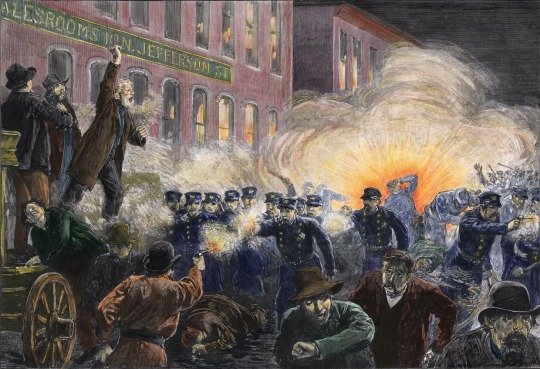
Happy May Day! 🏴🏴🏴
For a short history of this day of celebration and resistance across a century and a half:
https://crimethinc.com/MayDayHistory
To give a sense of what the day means to us, read this excerpt of a text published today in Russian by the anarchist project http://akrateia.info.
We've translated it because it is a beautiful and inspiring expression of how the struggle for liberation and mutual aid has persisted across centuries against all odds.
"Mayday is an international distress signal in radio communications, similar to the SOS signal in telegraph communications. This is an approximation of the French phrase 'm'aidez,' a shortened version of the phrase 'venez m'aider'(meaning 'come to my aid,' 'help me'). On this day, we offer to come to each other’s aid (what Peter Kropotkin called 'mutual aid').
"We appeal to you: wherever you are—under fire, in a hospital, in prison, in a foreign country, trying to find a way to earn money, in your native country where you risk becoming a victim of torture by the authorities—we want to remind you that you are not alone. We want to be with you in spirit, no matter how difficult it may be right now.
"Anarchism never died. Throughout the bloody history of the 20th century. it survived and developed. If you are reading these lines, that means you are also involved in our great cause. How many times have anarchist periodicals addressed their readers on May 1? How many times have anarchists feared that anarchism might die and totalitarian countries and fascists would win?
"We will continue, as our predecessors did. We will not give up because we are coming to help each other."
143 notes
·
View notes
Text
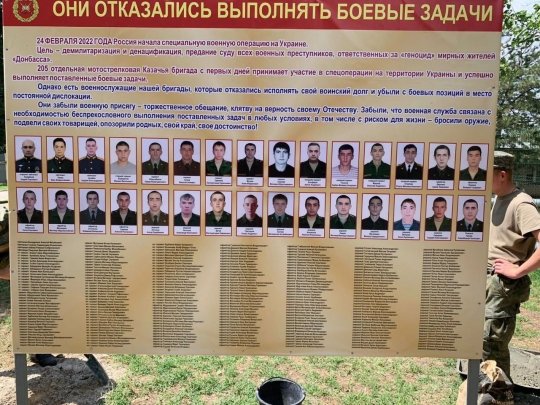
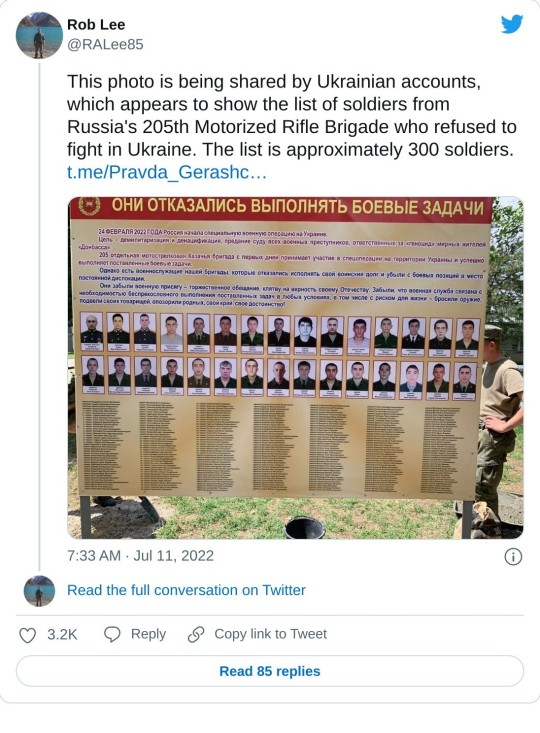
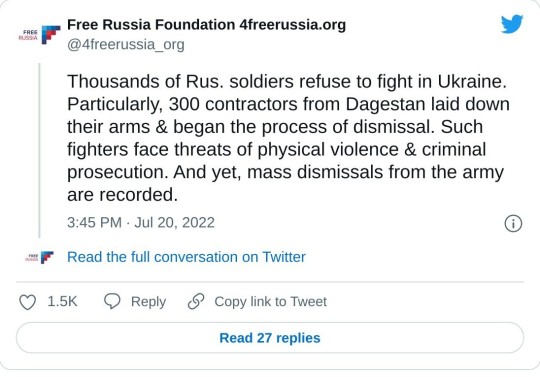
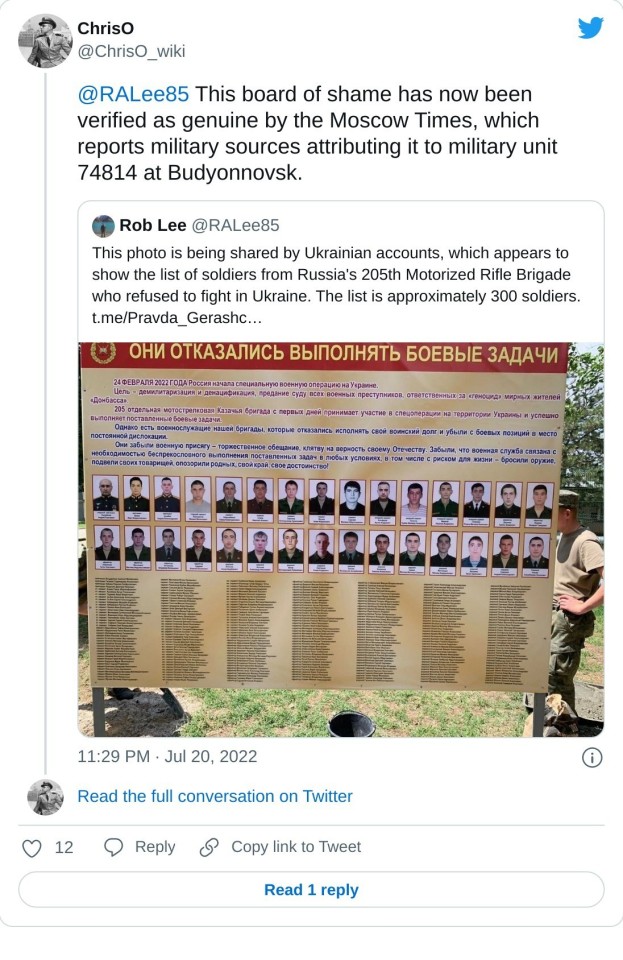


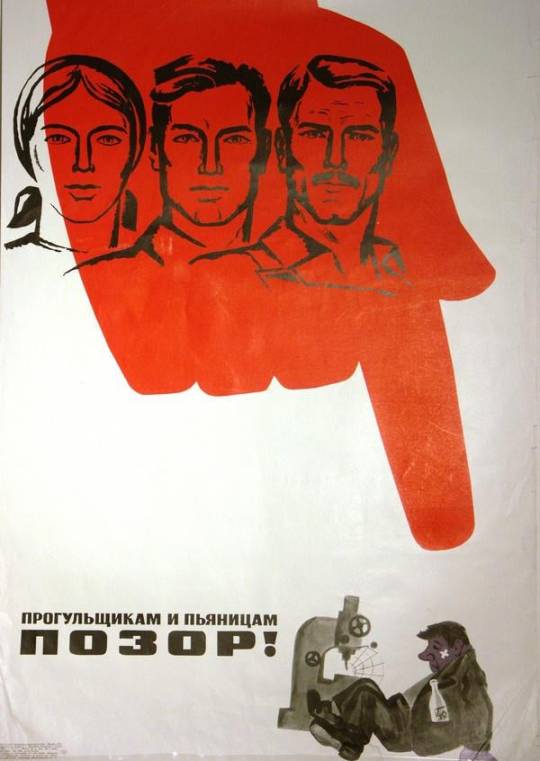
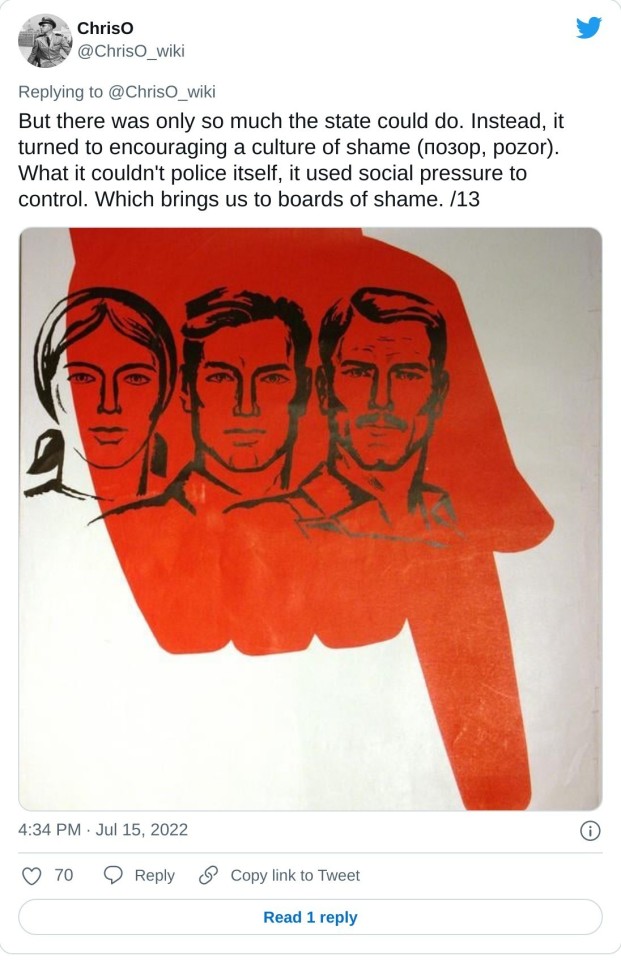
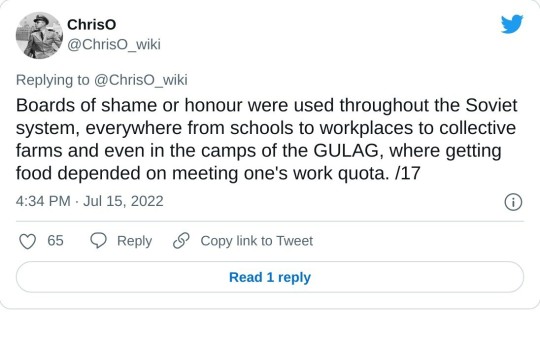
#refusers#russian soldiers refusing to fight#board of shame#soviet creation#thousands of russian soldiers refuse to fight#the gulag archipelago#totalitarian tactic#russia totalitarian state#ukraine resistance#ukraine war#russian invasion#putin war criminal#i stand with ukraine#slava ukraini#russia will crack first
15 notes
·
View notes